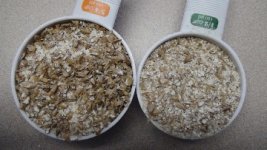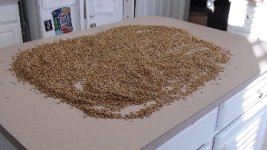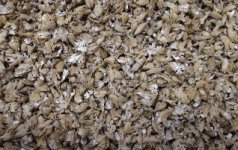Hello all. New here and glad to be in the presence of so many other home brewers.
I've brewed three all grain batches (all 5 gallon). First was a disaster :'(, second was better, and third I patched by adding some sugar to the fermenter.
Question: Do you experienced homebrewers have some advice for a novice to all grain brewing to get the maximum gravity out of the wort?
Thanks for any thoughts.
I've brewed three all grain batches (all 5 gallon). First was a disaster :'(, second was better, and third I patched by adding some sugar to the fermenter.
Question: Do you experienced homebrewers have some advice for a novice to all grain brewing to get the maximum gravity out of the wort?
Thanks for any thoughts.



